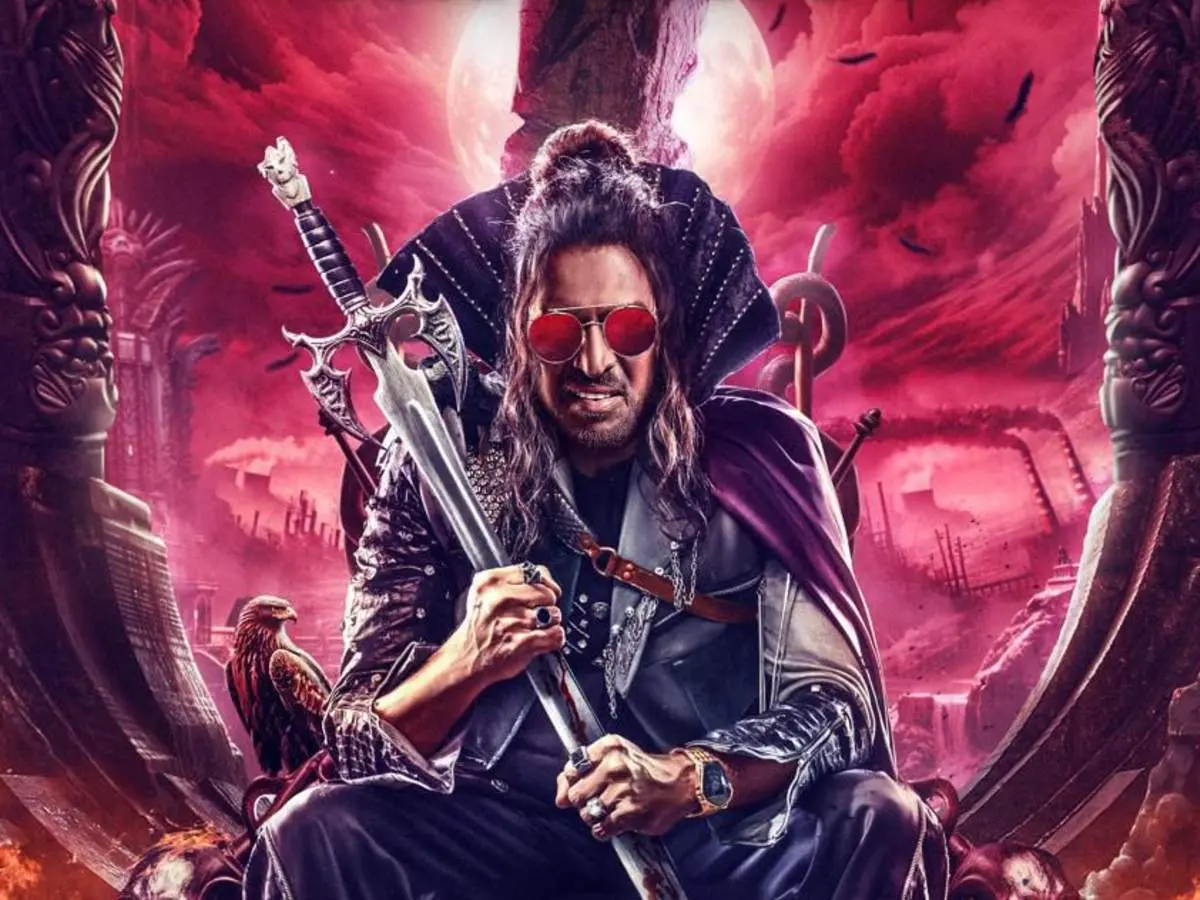
What’s it about?
Satya (Upendra) seeks to restore the ‘dharma’ of Satyayuga, whereas Kalki (Upendra) desires to impose punishment for all transgressions. As Satya remains confined, Kalki initiates transformation in his own manner. After assuring a politician (Ravi Shankar) of his elevation to a national leadership position, Kalki embarks on a spree of damaging tactics. Who will win finally – Kalki or Satya? Will a common citizen ever get the message Kalki intended to convey?
Analysis
“If you are intelligent, get out of the theatre now. If you are a fool, sit back and watch the film.”
Upendra issues this warning at the film’s beginning. He has consistently exhibited eccentric and unconventional narrative methods. After a prolonged hiatus from film direction, Upendra provides this narrative infused with surrealistic concepts, meta themes, and dark humor. The film “UI” commences in a self-referential fashion, featuring Upendra both as the actor and director. A critic decides to meet Upendra to understand the film’s essence and discovers the charred script, thus initiating the narrative of “UI.”
From this critic reading the script, we get to see the story of “UI.” This is a compelling beginning. But from there, we get to see many scenes that represent his own signature style. But much of the movie confuse with some weird scenes proceeding. Only after an hour in the film, we begin to understand that all these surreal sequences are satire.
It is only in the last minutes that we fully comprehend that “UI” serves as a direct satire of the contemporary political system. He ridicules the existing governments political parties with several implicit allusions. He illustrates how political parties distract people from substantive issues, perpetuating conflict over trivial matters.
In a song, he articulates how people contend over whose is “bigger,” employing a double entendre that serves as a poignant satire on religion. He illustrates how leaders engage individuals in consuming Instagram reels and YouTube videos, so preventing them from questioning issues. There is also sarcasm on the ‘6 guarantees’ and the free initiatives of the local government.
In one episode, a group of people residing in a dilapidated building, lacking enough clothing and food, observes cricket on their mobile devices and follows the news, finding joy in the government’s procurement of jet planes for their security. The film contains numerous such satires.
Upendra challenges the glorification of mass events characterized by bloodshed, violence, and impactful dialogues in films as well. He empowers “U” (us the people) to make independent decisions rather than being swayed by media influences. We (U and I) should contemplate our own wants, rather than being swayed by the agendas of political parties – this encapsulates the core message of the film.
Upendra portrays the two characters in his own signature style – deliberately over the top. The other actors don’t get much importance except being part of the proceedings. The film has decent production and technical values.
Bottom line: “UI” is a surreal satirical film that critiques the contemporary political system. By exercising patience, you will ultimately grasp the main message of Upendra and the satirical sequences. However, the film lacks uniformly engaging narration and demands a lot of patience. It is undoubtedly an unorthodox effort by Upendra. ‘U’ decide yourself; ‘I’ will not tell anything further.
Rating: 2.5/5
Movie:UI
Cast:Upendra, Reeshma Nanaiah, P. Ravi Shankar, Murali Sharma, Indrajit Lankesh, Nidhi Subbaiah, Devaraj, Om Sai Prakash, Achyuth Kumar, and others
Music: B Ajaneesh Loknath
Editor: Vijay Raj BG
Art Director: Shivakumar.J
Produced by:G Manoharan – Sreekanth KP
Written and Directed by:Upendra
Release Date:December 20, 2024






